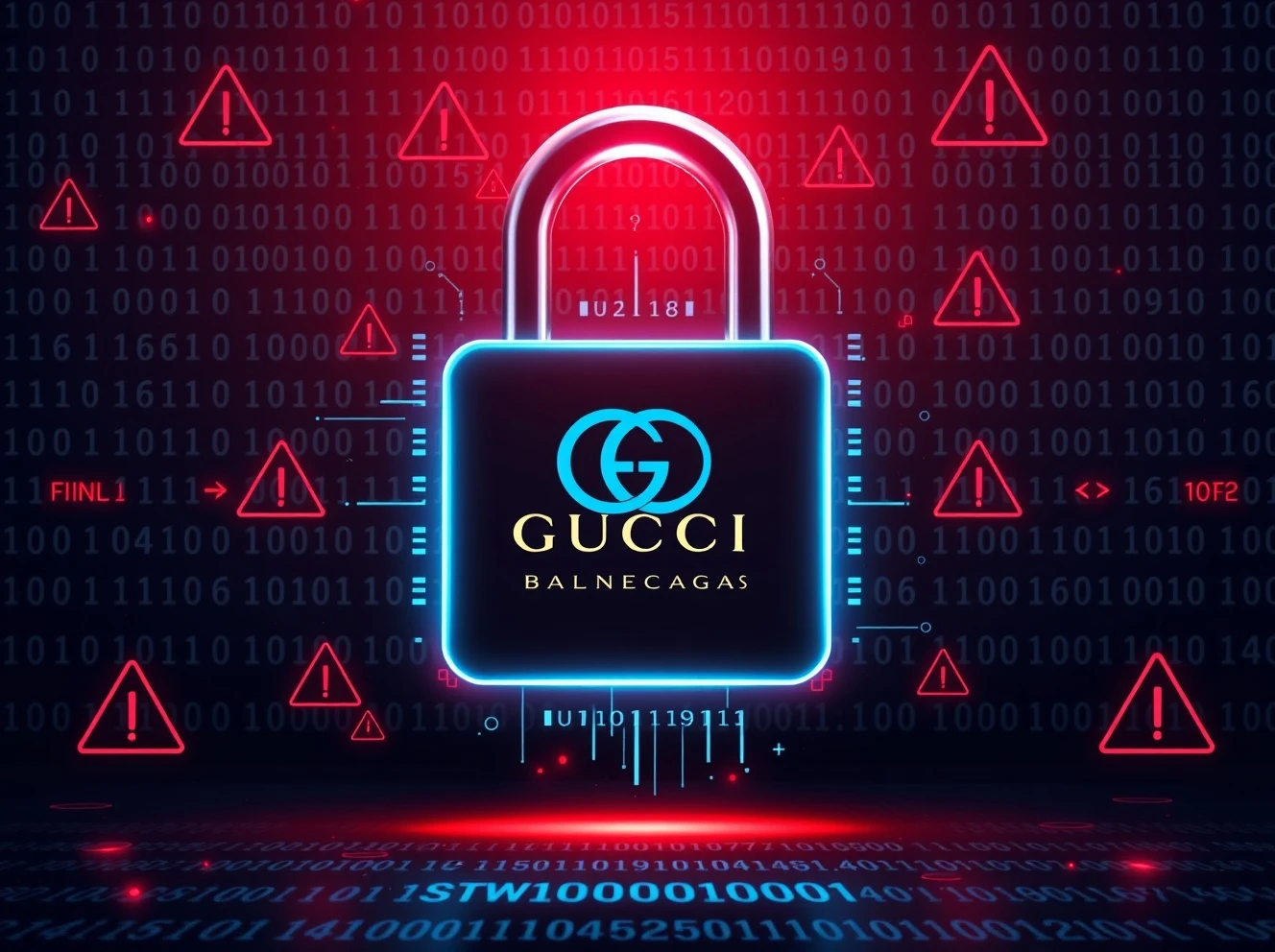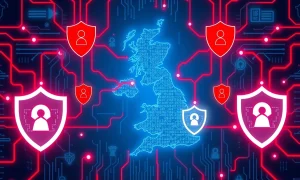In a devastating cybersecurity incident, luxury fashion conglomerate Kering has confirmed a massive ransomware attack compromising millions of customer records from its prestigious brands including Gucci, Balenciaga, and Alexander McQueen. This sophisticated ransomware attack represents one of the most significant data breaches in the luxury retail sector this year.
Massive Scale of the Ransomware Attack
The ransomware attack, discovered in April but only recently disclosed, exposed sensitive customer information across Kering’s luxury house portfolio. Hackers gained temporary access to corporate systems, extracting detailed customer databases containing:
- Full names and contact information
- Home addresses and phone numbers
- Email addresses and purchase histories
- Total in-store spending amounts
Security experts confirm this ransomware attack compromised approximately 7.4 million email addresses, indicating a similarly massive number of affected individuals.
Financial Impact and Security Risks
Despite Kering’s assurance that no financial data was stolen, the exposed information presents serious risks. The stolen records reveal spending patterns and customer value tiers, enabling targeted phishing campaigns. Some records showed individual spending exceeding $86,000, making high-net-worth customers particularly vulnerable to sophisticated fraud attempts.
Shiny Hunters: The Perpetrators Behind the Attack
The hacking group Shiny Hunters, also tracked as UNC6040 by Google, claimed responsibility for this ransomware attack. This collective has previously targeted technology firms and government contractors using phishing-style intrusions. In June, they approached Kering demanding Bitcoin ransom payments, which the company refused based on law enforcement guidance.
Industry-Wide Cybersecurity Concerns
This ransomware attack follows similar incidents affecting other luxury retailers including Cartier and Louis Vuitton earlier this year. The luxury sector’s wealthy clientele and extensive customer databases make it an attractive target for cybercriminals. As online sales continue growing, robust security measures become increasingly critical.
Legal and Regulatory Implications
Under UK GDPR regulations, companies must practice data minimization—collecting only essential customer information. Becky White, Senior Solicitor at Harper James, emphasized that this ransomware attack serves as a wake-up call for the industry. Businesses must invest in comprehensive security protocols and transparent communication to maintain customer trust and brand reputation.
Protective Measures and Response
Kering has secured its IT systems and notified relevant regulators following the ransomware attack. The company contacted affected customers directly, though the exact number remains undisclosed. Legal requirements allow companies to avoid public statements when individually notifying victims, but the scale of this breach has raised industry-wide alarms.
Frequently Asked Questions
What information was compromised in the ransomware attack?
The attack exposed customer names, email addresses, phone numbers, home addresses, and purchase history including spending amounts. No financial data or government IDs were stolen.
How many customers were affected by this breach?
Hackers claim to possess data linked to 7.4 million email addresses, suggesting a similar number of affected individuals across Gucci, Balenciaga, and Alexander McQueen customers.
Did Kering pay the ransom demand?
No. Kering followed law enforcement advice and refused to pay the Bitcoin ransom demanded by Shiny Hunters in June.
What should affected customers do now?
Customers should monitor for suspicious emails or communications, enable two-factor authentication where possible, and remain cautious of phishing attempts referencing their luxury purchases.
Are other luxury brands at risk of similar attacks?
Yes. The luxury sector’s valuable customer databases make it a prime target for cybercriminals. Recent attacks on Cartier and Louis Vuitton indicate an industry-wide trend.
What security measures is Kering implementing?
Kering has secured its IT systems, notified regulators, and is enhancing security protocols to prevent future breaches. The company emphasizes ongoing investment in robust cybersecurity infrastructure.








